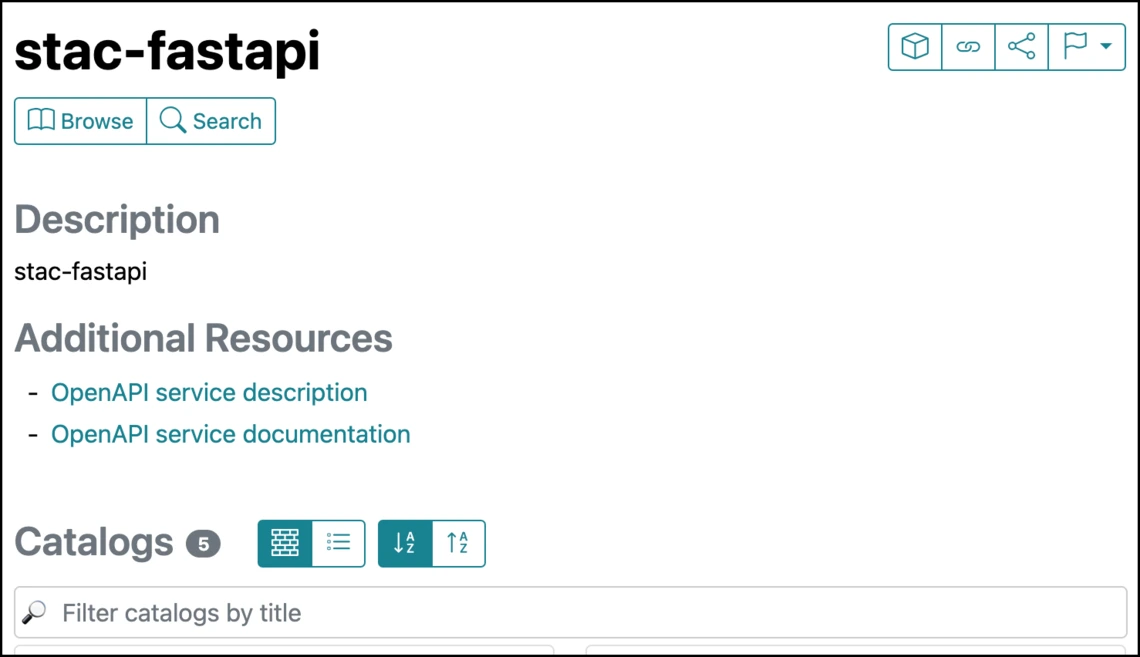STAC Incubator project completed!
Our collaborative incubator with Tyson Swetnam and Jeff Gillan produced a STAC Jupyter Notebook on CyVerse

Our STAC incubator with Tyson Swetnam and Jeff Gillan of the BIO5 institute at the University of Arizona was recently wrapped up. We cooperatively developed a Python Jupyter Notebook which allows researchers to easily generate STAC catalogs of their GeoSpatial data.
The STAC specification defines JSON formats and an API for temporal-spatial data. These catalogs can then be displayed and searched in a browser like the Radiant Earth STAC Browser, for example.
In this incubator, Tyson Swetnam, Jeff Gillan, and Chris Schnaufer (of the CCT Data Science team), worked together to develop the Jupyter Notebook for the CyVerse environment. At the time of this writing, the Notebook supports GeoTIFF and LAS/LAZ file formats.
By generating STAC Catalogs, Collections, and Items, researchers can store their data with any layout, and make it available and searchable to their collaborators and the public as desired. Additionally, this STAC infrastructure is available to geographically enabled applications and development tools such as QGIS and GDAL.
We are excited to be a part of this evolving technology and look forward to continuing to assist researchers and scientists with managing their data sets while helping to enable FAIR principles. If you are a researcher at University of Arizona and are interested in using STAC tools in your work, feel free to reach out to us! This project was part of our group’s incubator program, which enables researchers in UA ALVSCE to work collaboratively with our group on short-term projects.

